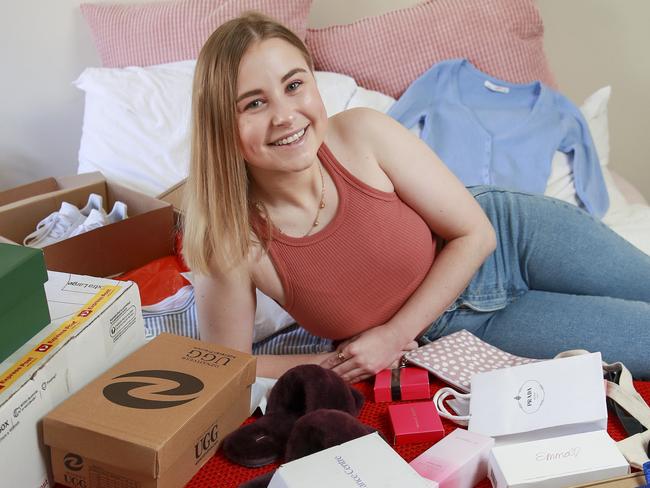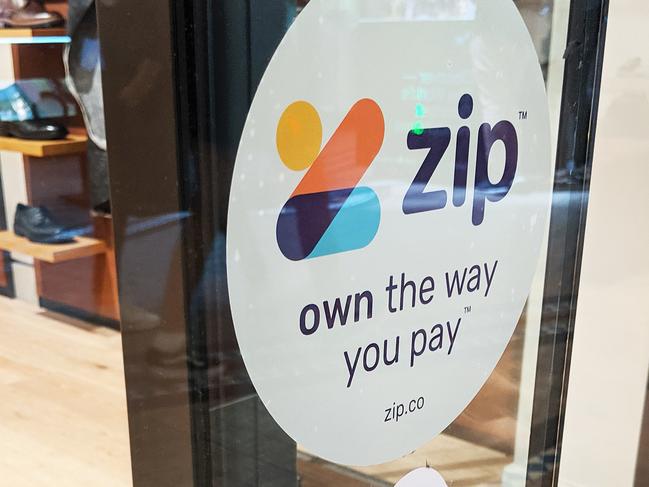Buy Now, Pay Later: What new industry standards mean for Australian customers
Afterpay and other Buy Now, Pay Later providers will soon be subject to a new minimum standards which are set to impact consumers.
Money
Don't miss out on the headlines from Money. Followed categories will be added to My News.
After years of consumer groups calling for Buy Now, Pay Later providers to be regulated as credit providers, the industry has responded.
The sector will next week unveil a new code, developed under the guidance of the Australian Finance Industry Association (AFIA), which will set out minimum standards for BNPL players.
Afterpay, Zip, OpenPay, Payright, Brighte, Humm, Klarna and Latitude are all expected to be signatories to the code. It’s understood they are currently being assessed by the independent Code Compliance Committee - which will oversee the new self-regulatory code - to ensure they can adhere to the new rules.
This is what the move means for consumers.
WHAT IS THE NEW BUY NOW, PAY LATER CODE?
Named the Code of Practice for Buy Now, Pay Later Providers, the AFIA says it was developed to “take a proactive approach to increasing consumer protections and go beyond current regulatory obligations for BNPL products and services”.
Essentially, it sets out a minimum standards for the industry, and all eight BNPL players currently operating in Australia are expected to sign on to it.
Some BNPL companies already follow many of the rules that are set to be codified, which include things like when credit checks will be conducted and what providers do in the event a customer is experiencing financial hardship.

“It threads the needle to sew together strong consumer protections, customer choice and industry innovation,” AFIA CEO, Diane Tate, told Nine Newspapers.
However, while major consumer groups welcomed the code as a “positive” first step, they still believe BNPL providers need to be regulated like other credit products.
“BNPL services are not currently required to hold a credit licence and are not subject to consumer protections under the National Consumer Credit Protection Act 2009, despite the fact that some of these services loan large amounts up to $30,000,” Financial Counselling Australia, the Financial Rights Legal Centre, the Consumer Action Law Centre, and consumer group Choice said in a joint statement.
“This means that ASIC cannot take compliance and enforcement action for breach of lending standards by BNPL providers.”
However, an AFIA spokesman said BNPL providers were required to meet “various legal and regulatory obligations, and have oversight from ASIC, the Australian Competition and Consumer Commission, AUSTRAC, and the Office of the Australian information Commissioner.”
HOW WILL THIS CHANGE THE WAY I USE BUY NOW, PAY LATER?
In most cases, seemingly not too much.
A draft of the code, seen by News Corp Australia, does not compel BNPL providers to conduct credit checks for new customers if their purchase is under $2000. They will also need to make their first payment upfront.
However, if their purchase is more than $15,000, they will be subject to a credit check and also an assessment of existing customer data. This will also be applicable to existing customers, too.
Existing customers will also be unable to make further purchases through a BNPL provider if they are behind on payments. However, there is some concern over customers still being able to make purchases through another company even if they are struggling elsewhere.
“The buy now pay later industry need to come together, talk to each other about how they can stop people from signing up to multiple accounts and getting themselves into a string of trouble rather than just trouble with just one provider,” RateCity research director, Sally Tindall, told Channel 9.

WHAT IF I’M STRUGGLING TO MEET MY BUY NOW, PAY LATER PAYMENTS?
The draft code says that if a customer makes a hardship request, they will be informed in writing of the outcome within 21 calendar days of either:
- When additional information on the request was provided;
- If no additional information is requested, then within 21 calendar days of the hardship request.
BNPL players are also compelled not to initiate bankruptcy proceedings against customers, and to not list a defaults on their while considering a financial hardship request.
The code also says members will consider waiving fees and charges and “take steps to work out a mutually acceptable repayment arrangement” for those in financial hardship.
WHO OVERSEES THE BUY NOW, PAY LATER CODE?
It will be overseen by a Code Compliance Committee, which is independent to the AFIA.
The Committee includes an independent Chair, a representative with industry and legal experience, and a consumer representative who has been nominated by the Consumers’ Federation of Australia.
“This Committee has monitoring powers and also a broad range of sanctions available to them if there are breaches of the Code – up to and including publicly naming members who have had a significant breach,” an AFIA spokesperson said.
Signatories will also be members of the Australian Financial Complaints Authority (AFCA).
In the event of a code breach, customers will be asked to contact the BNPL provider first and then contact AFCA “if considered necessary”.
More Coverage
Originally published as Buy Now, Pay Later: What new industry standards mean for Australian customers
Read related topics:Explainers




